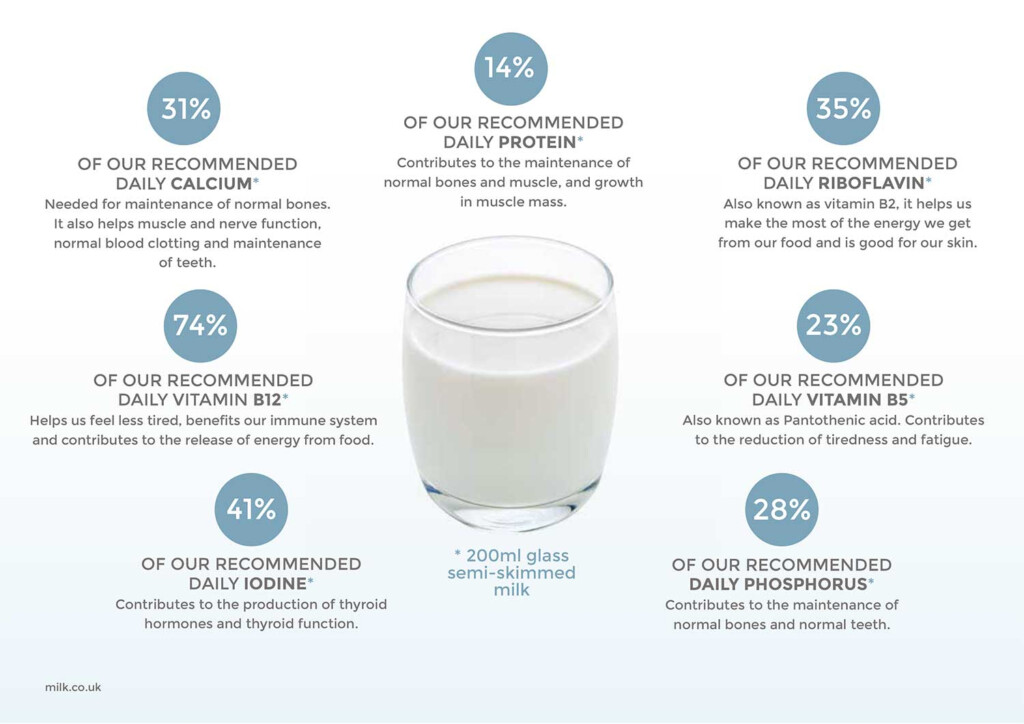Milk is a nutrient-rich beverage that provides essential vitamins and minerals for overall health. One of the key nutrients found in milk is calcium, which is crucial for bone health and development. It also contains protein, which is important for building and repairing tissues in the body. Additionally, milk is a good source of vitamin D, which helps the body absorb calcium and supports immune function.
Another benefit of milk is that it contains potassium, which is essential for maintaining healthy blood pressure levels. In addition to these nutrients, milk also provides riboflavin, phosphorus, and vitamin B12, which are important for energy production and nerve function.
Nutrition Information On Milk
Nutrition Facts of Milk
One cup of whole milk (240ml) contains approximately:
- Calories: 150
- Protein: 8g
- Fat: 8g
- Carbohydrates: 12g
- Calcium: 30% of the Daily Value (DV)
- Vitamin D: 25% of the DV
It’s important to note that the nutritional content of milk can vary depending on the type of milk (whole, skim, 2%, etc.) and whether it has been fortified with additional nutrients. For those who are lactose intolerant or have dairy allergies, there are alternative milk options available such as almond milk, soy milk, and oat milk that can provide similar nutrients.
Conclusion
Milk is a nutritious beverage that offers a wide range of essential nutrients for overall health. Whether consumed on its own or used in cooking and baking, milk can be a valuable addition to a balanced diet. It’s important to be mindful of portion sizes and choose the type of milk that best fits your dietary needs and preferences.
